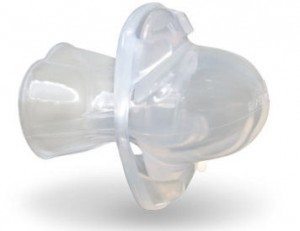For many years, Continuous Positive Airway Pressure (CPAP) has been the gold-standard treatment for Sleep Apnoea sufferers. It involves the patient applying a mask attached via a flexible tube to a ‘flow generator’ that blows air through their airways.
Although effective for some patients, CPAP is not ideal for everyone, often uncomfortable, intrusive and hard to tolerate for the wearer and their bed-partner. CPAP systems can also be cumbersome and inconvenient to transport, and expensive to maintain.
The compliance rate for sustained CPAP is estimated to be around 50 per cent, significantly lower than the 80 per cent success that other oral treatments achieve in comparison.
Alternative treatments to CPAP
Sleep Apnoea sufferers historically had limited choice when it came to treatment for their sleep disorder. Today, with advancements in dental sleep medicine and subsequent oral and positional technologies, there are several treatment options. Symptoms are often managed with a combination of therapeutic options such as oral and positional therapy.
Mandibular Advancement Splints (MAS)
An oral appliance is similar to a mouth guard used when playing sport, but is worn by Sleep Apnoea sufferers when they go to bed. The appliances are made from comfortable, high strength acrylic and are worn over the top of the teeth.
These custom-made appliances, known as Mandibular Advancement Splints (MAS), have revolutionised treatment for Sleep Apnoea sufferers. They are more portable, far less intrusive, easier to wear for most patients and have a far higher success rate than CPAP therapy. Following a series of consultations with Absolute Sleep, a MAS is custom-made to suit an individual patient. Patients often respond saying they are comfortable to wear, far easier to manage and simpler to maintain than their conventional treatment. The long-term compliance rate is high for these reasons.
How a MAS works
To use a MAS is simple and easy for a patient. The device is put into the mouth at night and works by preventing the tissues at the back of the throat and the base of the tongue from collapsing back into the airway. The appliance moves the lower jaw forward, bringing the tongue with it, thereby clearing the airway at the back of the throat.
ProSomnus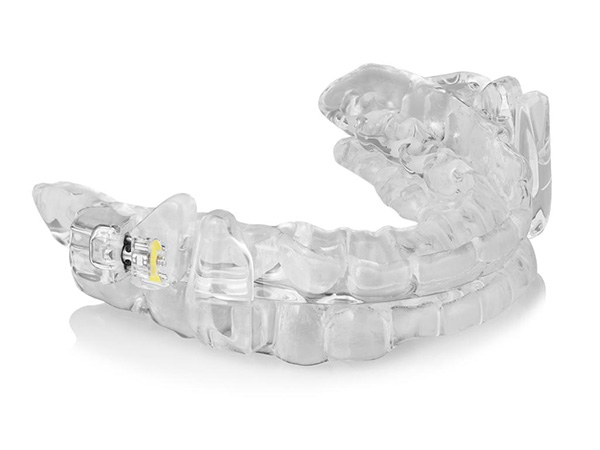
The ProSomnus Sleep and Snore Devices are one of the smallest and most comfortable custom made oral appliances available.
The ProSomnus Sleep and Snore Devices are custom-made with CAD/CAM technology to uniquely fit the individual it is fabricated for. It offers plenty of space in your mouth in which your tongue can rest comfortably while you sleep, so no more mouth breathing!
You can easily open and close your mouth, so you don’t feel trapped in your appliance. The ProSomnus Sleep and Snore Devices come in two parts. One arch fits over the upper teeth and one over the lower teeth.
These two parts work together to hold your jaw in the ideal position to help you stop snoring.
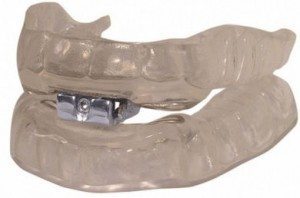
MDSA
An MDSA appliance is a splint inserted into the patient’s mouth to reduce snoring and Sleep Apnoea in mild to moderate cases. The concept was designed in conjunction with Australia’s leading dentists, sleep physicians and dental technicians to treat the needs of their patients.
Over the past 10 years, the MDSA concept has been subjected to extensive scientific and clinical testing and evaluations. The device is manufactured from patient’s own dental impressions using dual laminate hard/soft splinting material, ensuring the greatest retention, comfort and durability for the wearer.
An appliance manufactured with the MDSA Components offers easy titration, full lateral and controlled vertical movement and exceptional ease in inserting each night.
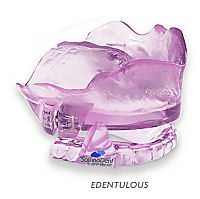
SomnoDent
The SomnoDent oral sleep appliance is a custom-made MAS that treats mild to moderate obstructive Sleep Apnoea by preventing breathing lapses during sleep.
The device consists of an upper and lower dental plate with a unique patented fin-coupling component, which allows normal mouth opening and closing.
The splint moves the lower jaw slightly forward. This forward movement tightens the soft tissues and muscles of the upper airway, which prevents obstruction of the airway while users sleep.
This tightening also prevents the tissues of the upper airway from vibrating as air passes over them – the most common cause of loud snoring.
The design of the SomnoDent oral sleep appliance offers significant advantages. The splint is comfortable to wear and provides effective treatment.
For the majority of patients, the SomnoDent oral sleep appliance presents a highly attractive solution for the treatment of mild to moderate Sleep Apnoea, particularly if CPAP does not agree with them.
Its exceptional level of patient acceptance and satisfaction, as well as treatment efficacy, are backed by a large body of clinical trials and research results.
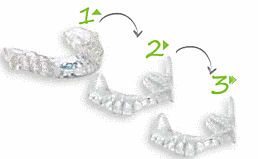
SomnoSnore
The SomnoSnore is an innovative, three-step anti-snoring system designed to treat primary snoring. It uses an advanced three-splint system with devices similar in appearance to a sports mouth guard. The system consists of three steps that gently advances the user’s lower jaw forward, tightening the muscles in the airway.
The SomnoSnore includes, 1 x upper dental splint, 1 x initial advancement splint, 1 x forward advancement splint
SomnoSnore is comfortable to wear because it is manufactured to the same high quality as other SomnoMed SDB appliances such as the SomnoDent.
Aveo Tongue Stabilising Device (TSD)
The tongue stabilising device (TSD) is an oral appliance treatment for snoring and sleep apnoea. It is a small piece of plastic that sits at the user’s lips, resembling a large dummy with a hole into which the tongue is inserted. It holds the tongue forward, which can alleviate snoring or Sleep Apnoea that occurs with an obstructed airway.
A tongue stabilising device may be a desirable option for sufferers who have been unable to tolerate standard treatments for Sleep Apnoea.
It may be especially useful if the airway is obstructed due to a large tongue. It must be properly fitted by a medical professional, typically a doctor or dentist.
Not everyone can use a TSD. Users must be able to stick their tongue out past their teeth in order to secure the device in place. In particular, some people with an intact frenulum (the connective tissue that holds the tongue to the floor of the mouth) may not be able to use a TSD.
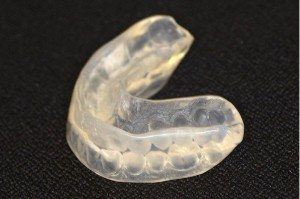
Non adjustable Mandibular Advancement Splint (MPA)
This is a fixed, non-adjustable MAS, also referred to as an Elastomeric appliance. Constructed in a dental laboratory, it is made of a very pliable, soft, custom-injected polyvinyl and is retained by the teeth.
There are no clasps or wires to adjust. The flexibility of the material lends itself to a high degree of patient comfort. The MPA is not protrusively adjustable.
It is one of the least expensive and most popular anti-snoring devices. Impressions of both upper and lower teeth are taken by the dentist and plaster models made from the impressions are sent to a lab along with a protrusive bite registration.
The lab sends back a finished appliance. One of the unsung advantages of this type of device is its indestructibility. It cannot break under pressure and the fit, with a few adjustments, is near perfect.
